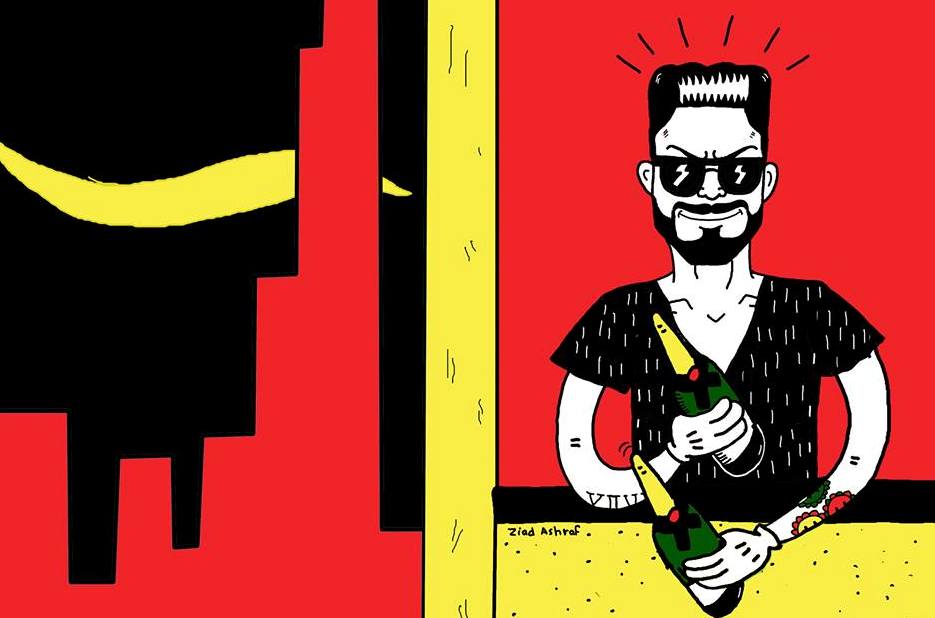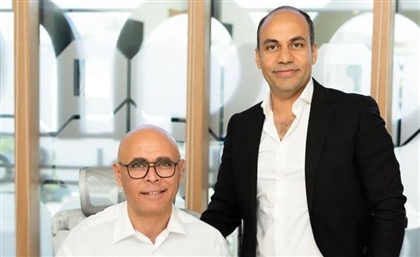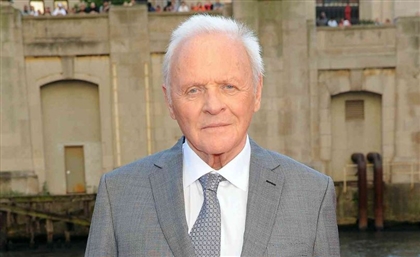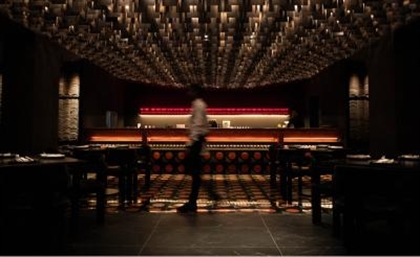How (Not) to Do Dubai
Ahh, Dubai. The crowning jewel of the Middle East, where convenience is afforded to whoever has the most cash and the world's best/biggest/first anything resides. A two-day trip there couldn't do that much harm, could it?

Dubai is excessively kitsch with its obsessive, slavering attention to filtered Western topographical and cultured idiosyncrasies. You can sneer at it but it wouldn't care; it's constructed on such a clichéd luxury scale that sardonic sneers just bounce off its religiously right-angled architecture and irony slides away defeated. For someone used to living among things picked with care and taste, if your eye is constantly snagged towards decoration and proportion, then their absence is somehow soothing. There isn't a sliver of feeling in anything and for that, the idea of existentialism is nonexistent without its opposite. As such, it is eerily relaxing.

Those were my first impressions of the city, as I made my way through the desert to my hotel from the airport. I was there on a quick business trip and had a couple of days to see the sights, all of which I’d probably already seen on the way to the hotel – lots of sand and big buildings. With my meeting out of the way, that night my brother, his girlfriend and I had a lovely meal in the Downtown area which included “the tastiest hamburger in the world.” We wandered around and I caught sight of Dubai’s Magnum Opus of forced, opulent tourist attractions: the fountain. “The largest choreographed fountain system in the world,” in fact. All of a sudden, blaring Khaleej music echoed across the plateau, as if God himself was standing over the city with a giant megaphone. I can only imagine this is what it might look like if Angels ejaculated. The sight was bordering on celestial, as water from the 30 acre manmade lake exploded and danced in synchronicity, 150 meters into the air with the Burj Al Khalifa “the tallest man-made structure in the world” as it’s backdrop. The angels ejaculate every 30 minutes. The vacant tourists stood agape with their mobile cameras snapping away, the working locals stood there in an all too familiar trance, dragging on their cigarettes and, all I could think was a few hundred miles away, little Tskm’bele crawls, malnourished and dehydrated, towards the well in the sparse Malawi desert. There is no water left, and Dubai is making tonnes of the stuff do ballet for fun. I spare a thought for Tskm’bele, maybe Madonna will adopt him.. No, wait, she’s busy performing here next week. Whenever there is exaggerated extravagance in the world, somewhere, there is inflated poverty and, as a whole city built on unsustainable resources, Dubai is big counterbalance to the world’s economic equilibrium. Where there are sparkling clean roads, pathways and gardens, and everywhere in Dubai is spotless, there are slums on the outskirts of the city, harbouring hundreds of thousands of Bangladeshi immigrants, in the worst conditions imaginable. Maktoum’s minions.
The fountain was a perfect metaphor for Dubai. Glistening, loud, extravagant, over indulgent, and bursting into life out of nowhere; Sheikh Maktoum, it seems, is the only person In Dubai who gets irony. And he’s very much omnipresent. I passed about 12 Transformer size images of the Eric Cantona doppelganger plastered on “the most twisted building in the world,” “the most transparent building in the world,” “the most energy efficient building in the world,” “the most likely to be the gateway to heaven building in the world,” and “the building that was voted most resembling a White Plume Moth during cocooning on a frosty winter morning in the world.” I found shelter from the sky high army of Sheikh Maktoums and his water phantoms and grabbed a cab outside the marina. The driver belonged to the Bangladeshi working class of Dubai, the modern day slaves for the small amount of Emirati nationals. They drive their cars, build their buildings, cook their food, and run their establishments. And this one couldn’t be more grateful. “Oooohhh, this the life,” he exhales in his thick accent. He takes his hands off the wheel and puts them behind his back while still driving. He boasts about coming here 30 years ago, and that he got an award certificate from their taxi company in 2009 for being the best driver in Dubai. Given his success, he tells us of the shame he feels towards his youngest son; he has failed ten driving tests. “Ten! I am best driver in India, 2009, I get award certificate,” he repeats. “And my son? No, no, no. He wants to go back to Bangladesh, he has girlfriend. I say no, no, no. I call his boss to take his passport. He’s very upset with me, but he is crazy boy, he must work first. He must work.” I try to convince him to let his son follow his heart and that maybe he doesn’t want to be a driver, maybe he has bigger plans. In return, he shows me pictures of a deer he shot in the head and all the kids in his village back home holding up bloody disembodied parts of it in celebration. He then takes his hands off the wheel on the motorway to re-intact his shooting of a tiger in the jungles of Bangladesh.

The next day I’m taken to Barasti beach where I experienced the second echelon of humans that make up Dubai’s disenfranchised society. The expat community makes up more than 50% of the population, all there on a utopian short-cut to riches; a life hack where two years heading up an infant firm in the sun, sea and sand is equivalent to 20 years slaving away in the corporate ladder, living for the weekend and a few pints in the rain. They don’t have much of an imagination though, simply replacing the pub with the free entrance beaches. The beach is packed to the brim with sun-burnt Brummies and fake-tanned Essex girls looking around in amazement, grinning at each other like they’re all in on a secret. They court each other with the same banal greetings: “’Ey, ‘ey! Bit better than back home in Blighty this, ey?” as they are sipping on Coronas and lime in the sea, and the lifeguard looks on, enjoying the view. Bit better than back home in Bangladesh, he’s probably thinking.

Finally that night, it was time to dive into the VIP bubble that personifies the picture perfect perception of Dubai which re-vertebrates around the Middle East; where everything sparkles and comes free with that “Ahhh habibi, what’s mine is yours, if what’s yours is as good as mine!” attitude. It was a house party hosted by a prominent CEO, located on Palm Island “the biggest manmade island in the shape of a tree for no reason in the world.” Wait that’s not fair, there is a reason why it was built and we were justifying it. It’s so people can drive to the CEO’s penthouses in Porches with 16 bottles of Moet in the boot, on the world’s only tree shaped manmade island. I enter the pearly gates of the highlife and three pairs stunning footballer’s wife-esque legs trot passed me; I turn around to my brother with a big stupid grin. Bit better than back home, ey? I march into the kitchen where an oversized champagne glass filled with a few hundred Moet corks acts as a centerpiece to the flock of gorgeous women and balding kirsh-ed men. When their mouths aren’t pursed for sips of golden bubbly, they’re running on about money. Every conversation is about where they work, how much they get and how they can make more because “enough” isn’t in the city’s lexicon. The next couple of hours are a blurred Fellinian dream sequence. I’m on a rooftop with the lost city of Atlantis in the distance. A, cougar passed out, probably from champagne poisoning, grabs my ankle, her Cartier bracelets dangling to the floor; a sophisticated beggar, stricken by love poverty. I’m outside the massage room. A petite blonde with botoxed lips, bigger than her torso, lies on the table as 50-year-old man with chest hair bursting at the seams pours more Moet into her gullet like a funnel. I pass by the cinema room where a couple are making out. They stop mid-way and ask each other if they know who the owner of this place is, laugh, and carry on. I feel sorry for the aging CEO; he’s living a dream he probably had twenty years ago but only now has the opportunity to reach it, filling his empty four story penthouse with pointless decadent trinkets: an LCD-lit snooker table, a Lord of the Rings pinball machine… a former Miss Dubai...

Assuming the world is but a matrix, these people all chose the blue pill. Actually, they overdosed on the blue pill because, God knows, there aren’t any other pills you can get your hands on in Dubai. This is where the matrix code goes to die; the remaining numbers concentrated into one final resting place and everyone, everyone, is ‘happy’.
I land back in Cairo, thankful to be once again surrounded by reality, by culture and by warmth. Out of Brobdingnag and back to Lilliput.
I wait two hours for EgyptAir to find my luggage. I am berated by the customary swarm of Egyptian taxi drivers who grab my luggage and limbs without asking. I’m hit by the humid Cairo air and the pollution has fisticuffs with the champagne in my blood stream. The fight continues into my rumbling stomach, as I sit in traffic for the next hour, shaa3bi music blaring, air conditioning broken.
“Bit better back in Dubai, ey?” I think.
Check Out More How (Not) Tos here -
- Previous Article How (Not) to Drink Tea
- Next Article Authorities Introduce New Pet Dog License Requirements
Trending This Week
-
Nov 18,2024
SceneNow TV
Events Calendar




















